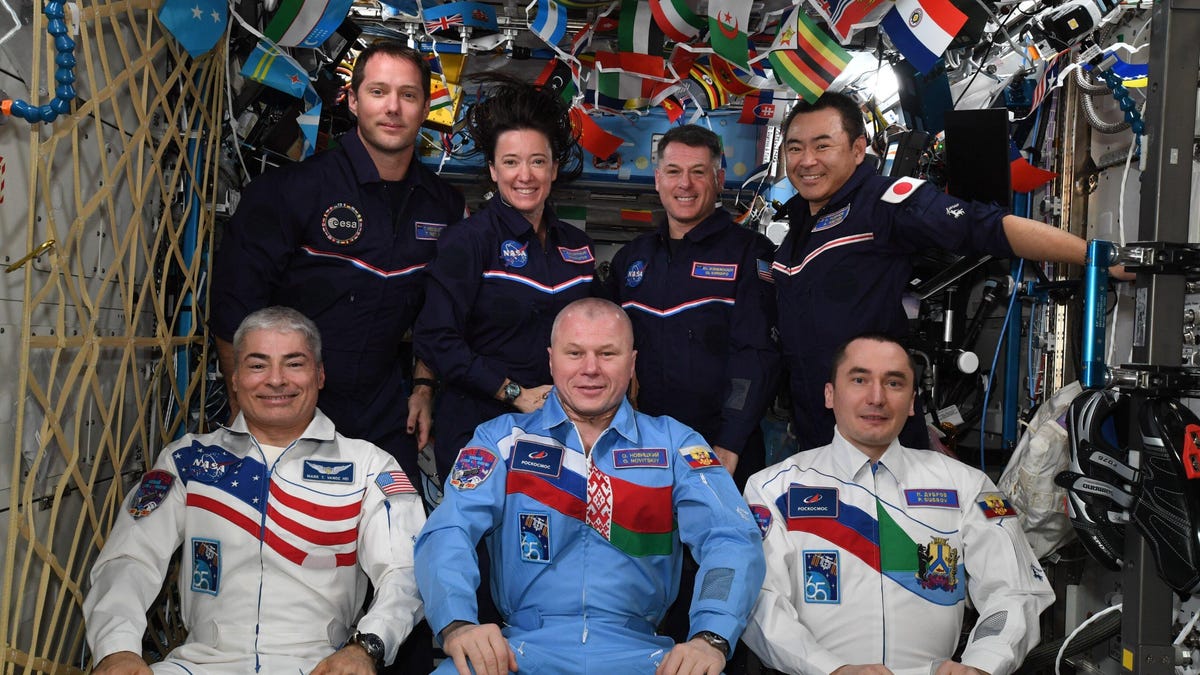See ISS crew compete in first-ever 'Space Olympics,' complete with no-handball
The events also included synchronized space swimming and lack-of-floor routine.

The Space Olympics featured Team Dragon (back row) with ESA's Thomas Pesquet, NASA's Megan McArthur and Shane Kimbrough, and JAXA's Akihiko Hoshide. Team Soyuz (front row) starred NASA's Mark Vandei Hei and Roscosmos's Oleg Novitskiy and Pyotr Dubrov.
The Tokyo summer games may be over, but the Olympics legacy lives on... in space. The seven astronauts and cosmonauts on the International Space Station engaged in a friendly athletic rivalry, and you can witness the out-of-this-world competition in full.
The European Space Agency -- which has astronaut Thomas Pesquet on the ISS -- shared a video on Tuesday of what Pesquet called "the first-ever Space Olympics."
Pesquet detailed the names of the events: synchronized space swimming, lack-of-floor routine, no-handball and weightless sharpshooting. The ISS crew filmed the games on an afternoon they had off at the same time the real Olympics were happening down on Earth in Japan.
The crew broke into two teams: Team Dragon (named for the SpaceX Crew Dragon spacecraft) and Team Soyuz (for the Russian Soyuz spacecraft). The video comes complete with music and commentary and shows off the crew's impressive ability to move about (sometimes actually in sync) in microgravity.
The gymnastics portion of the program was full of twists and turns and acrobatics while the no-handball game required moving a ping pong ball around with nothing but one's breath. The rules were subject to change during the competition.
Most of the crew members had challenges with "sticking the landing," but they all earned top scores for enthusiasm and entertainment factor. As for declaring a winner, I would suggest space fans down on Earth came out on top.
Follow CNET's 2021 Space Calendar to stay up to date with all the latest space news this year. You can even add it to your own Google Calendar.

